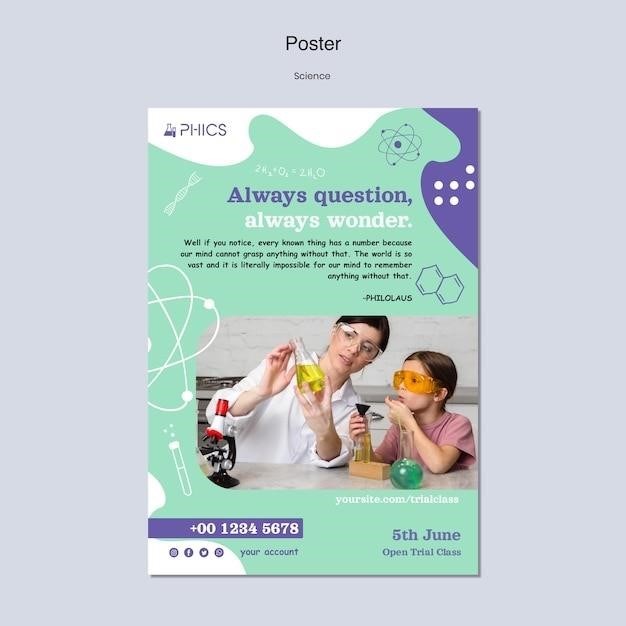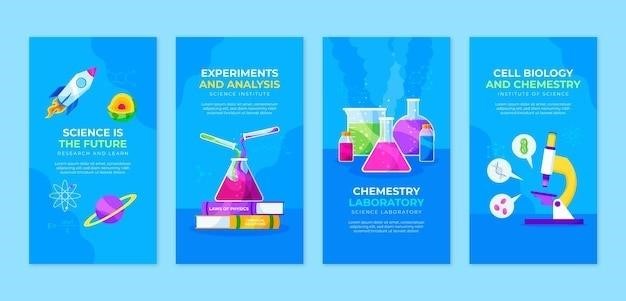Finding “Introductory Chemistry 6th Edition PDF” Online
Locating a PDF of “Introductory Chemistry, 6th Edition” online presents challenges. Many sources offer downloads, but legality and copyright must be considered. Proceed with caution, verifying permissions before accessing any material.
Challenges in Locating the PDF
Finding a legitimate PDF of “Introductory Chemistry, 6th Edition” can be difficult. Many websites offer downloads, but verifying their legitimacy is crucial. Copyright infringement is a serious concern; unauthorized distribution is illegal. Searching directly through reputable academic databases or the publisher’s website may yield better results, ensuring access to a legally obtained copy. Beware of unofficial sources that might offer incomplete or inaccurate versions of the textbook, potentially hindering your learning. Remember to always prioritize legal and ethical access to educational materials. The search may require patience and careful evaluation of sources.
Legality and Copyright Concerns
Downloading copyrighted material without permission is illegal. Distributing or sharing copyrighted PDFs of “Introductory Chemistry, 6th Edition” infringes on the publisher’s and author’s rights. This can lead to legal action with severe consequences. Respect intellectual property rights; purchasing the textbook or accessing it through legitimate channels is vital. Free, unauthorized copies often lack quality control, potentially containing errors or incomplete information. Always prioritize legal access to educational resources. Using pirated materials undermines the academic publishing system and the authors’ livelihoods.

Alternative Resources for Introductory Chemistry
Numerous options exist beyond a specific PDF. Explore open educational resources, online textbooks, and university library databases for comprehensive chemistry learning materials.
Open Educational Resources (OER)
Open Educational Resources (OER) provide a valuable alternative to commercially published textbooks. These freely accessible materials, often available online, cover a wide range of introductory chemistry topics. Many OER platforms offer interactive exercises, simulations, and videos to enhance learning. They are often collaboratively developed and updated, ensuring current and relevant content. While the specific content may not perfectly align with a 6th edition textbook, OER can provide a robust foundation in introductory chemistry principles. The flexibility of OER allows for customized learning paths, catering to individual student needs and learning styles. Licensing models vary, ensuring that most OER materials can be freely used, shared, and adapted for educational purposes, making them a cost-effective and accessible resource.
Online Chemistry Textbooks
Numerous online platforms offer introductory chemistry textbooks, either as rentals, purchases, or subscriptions. These digital textbooks often include interactive features, such as quizzes, simulations, and multimedia content, enhancing the learning experience. Some platforms provide access to online homework systems and instructor resources. While the cost may vary depending on the platform and licensing model, online textbooks provide a convenient alternative to physical copies. It is important to check for compatibility with specific devices and internet requirements. Students should compare features, pricing, and accessibility options before choosing a digital introductory chemistry textbook. The availability of supplementary materials and the platform’s user-friendliness should also be considered.
University Library Databases
University libraries often subscribe to extensive online databases providing access to a wide range of academic resources, including chemistry textbooks and other scholarly materials. Students enrolled at a university should leverage their library’s resources. These databases usually offer full-text access to many books and journals, eliminating the need to search for PDFs online. Library databases offer a reliable and legal way to access academic content. Many libraries provide tutorials and support to assist students in effectively using their online databases. Searching the library’s online catalog or contacting a librarian can help locate the “Introductory Chemistry, 6th Edition,” or similar texts, digitally through subscribed resources. Remember to check your university’s specific database offerings for the most accurate and up-to-date information.

Understanding the Content of Introductory Chemistry
Introductory chemistry courses typically cover fundamental concepts like atomic structure, bonding, stoichiometry, and basic thermodynamics. This foundational knowledge underpins further studies in chemistry and related fields.
Core Topics Covered in Introductory Chemistry
Common Learning Objectives
Successful completion of an introductory chemistry course typically involves achieving several key learning objectives. Students should develop a strong understanding of fundamental chemical principles and be able to apply these principles to solve problems. This includes mastering stoichiometric calculations, predicting reaction products, and interpreting chemical equations. Critical thinking skills are essential, enabling students to analyze experimental data and draw meaningful conclusions. Furthermore, effective communication of chemical concepts, both verbally and in writing, is a crucial objective. The ability to understand and interpret scientific literature is also vital. Finally, proficiency in laboratory techniques, including safe handling of chemicals and proper experimental design, is usually a key learning outcome.
Practical Applications of Introductory Chemistry
Introductory chemistry concepts have broad real-world applications. Understanding stoichiometry is crucial in fields like medicine (dosage calculations) and environmental science (pollution control). Acid-base chemistry is fundamental to many industrial processes, from food production to water treatment. Knowledge of oxidation-reduction reactions is vital in areas such as battery technology and corrosion prevention. Thermodynamics principles are applied in diverse sectors, including energy production and materials science. Furthermore, the principles of chemical kinetics are essential for optimizing chemical reactions in various industries. Finally, understanding basic spectroscopy techniques is critical in analytical chemistry, for example, in identifying unknown substances.
Utilizing Foundational Chemistry Knowledge
A strong grasp of introductory chemistry provides a solid base for further study in advanced chemistry and related scientific disciplines. This foundation proves invaluable in various real-world applications.
Building Blocks for Advanced Chemistry Studies
Introductory chemistry serves as the crucial foundation for more advanced chemistry coursework. Concepts like stoichiometry, chemical bonding, and thermodynamics, introduced in introductory texts like the hypothetical “Introductory Chemistry, 6th Edition,” are essential building blocks for understanding complex chemical reactions and processes. A solid grasp of these fundamental principles is paramount for success in organic chemistry, physical chemistry, analytical chemistry, and biochemistry. Without a strong foundation in introductory concepts, students may find themselves struggling to comprehend the more intricate and nuanced topics explored in advanced chemistry. Mastering introductory chemistry is therefore a critical step towards a successful career in the chemical sciences or any field relying heavily on chemical principles. The core concepts learned early on provide the necessary framework for tackling more challenging subjects later.
Relevance in Other Scientific Fields
A strong understanding of introductory chemistry principles, as presented in a textbook like a hypothetical “Introductory Chemistry, 6th Edition,” extends far beyond the realm of pure chemistry. Many scientific disciplines rely heavily on fundamental chemical concepts. For instance, biochemistry utilizes chemical principles to understand biological processes at a molecular level. Environmental science employs chemistry to analyze pollutants and their impact on ecosystems. Material science leverages chemical knowledge to design and synthesize new materials with tailored properties. Even fields like medicine and pharmacology rely heavily on chemical understanding for drug development and therapeutic applications. The broad applicability of chemical knowledge highlights the importance of a solid foundation in introductory chemistry for students pursuing diverse scientific careers. A comprehensive understanding of core chemical principles is thus invaluable across a range of scientific specializations.
Real-World Applications of Chemical Principles
The principles taught in an introductory chemistry course, such as those potentially found in a hypothetical “Introductory Chemistry, 6th Edition,” have numerous practical, everyday applications. Understanding chemical reactions is crucial for comprehending processes like cooking, where heat alters the chemical structure of food. Similarly, cleaning products rely on chemical reactions to break down dirt and grime. The proper use of fertilizers in agriculture depends on understanding chemical processes in soil and plant nutrition. Moreover, everyday materials, from plastics to medications, are the products of chemical synthesis and manipulation. Even seemingly simple acts like breathing involve intricate chemical reactions within our bodies. An understanding of chemical principles enables informed decision-making regarding environmental issues, such as pollution control and resource management. Therefore, a solid foundation in chemistry empowers individuals to better understand and interact with the world around them.
